MercoPress. South Atlantic News Agency
Stories for August 10th 2013
-
Saturday, August 10th 2013 - 17:06 UTC
Argentina Sunday primaries a leadership dispute inside the hegemonic Peronist party
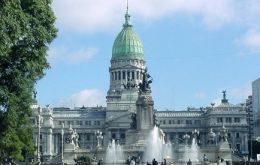
On Sunday Argentina will go to the polls to select their candidates for the country’s upcoming October legislative elections. Though it may seem a trivial democratic chapter, the open, mandatory and simultaneous primaries will in fact be the first step in an election that is likely to prove critical to Argentina and most probably a referendum on President Cristina Fernandez’ administration.
-
Saturday, August 10th 2013 - 16:30 UTC
Rajoy calls for ‘four-flag’ dialogue on Gibraltar and does not discard ‘unilateral measures’

Spanish Prime Minister Mariano Rajoy said he hopes for dialogue with Britain soon regarding Gibraltar, but added that until talks take place his government would continue to consider unilateral measures to defend Spanish interests. He said the country will take “all legal measures” to protect its interests in Gibraltar.
-
Saturday, August 10th 2013 - 16:26 UTC
UK/Gibraltar dossier on queues at the Spanish border to make a complaint at the EC
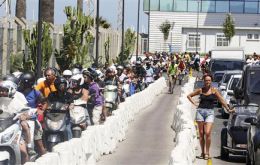
The Foreign office and the Gibraltar government confirmed they are collecting a dossier on politically motivated queues at the Spain/Gibraltar border with a view to making a formal complaint to the European Commission.
-
Saturday, August 10th 2013 - 16:18 UTC
France’s Alstom paid millions in bribes to secure contracts in Brazil

French power company Alstom paid millions of dollars in bribes to secure lucrative contracts in Sao Paulo state in 1998, a Brazilian newspaper reported this week. The Estado de Sao Paulo cited federal police documents as saying Alstom executives were among 10 people facing charges in connection with the scandal.
-
Saturday, August 10th 2013 - 02:38 UTC
Kerry arrives in Brazil on Tuesday to try and iron out strained relations over US spying

The government of President Dilma Rousseff will raise the issue of US spying on Brazilian companies and individuals next week when US Secretary of State John Kerry visits Brazil.
-
Saturday, August 10th 2013 - 02:33 UTC
Vazquez is the Uruguayan political leader with the highest acceptance, 62%

Former Uruguayan president Tabare Vazquez who this week announced he was prepared to be the ruling coalition’s candidate for next year’s presidential bid, is by far the political leader of the country which has the highest degree of acceptance, according to a Mori public opinion poll released earlier in the week.
-
Saturday, August 10th 2013 - 02:22 UTC
Gibraltar and Campo labour unions urge for good neighbourly relations

Leading Gibraltar and Spain’s Campo unions - Unite the Union, Comissiones Obreras (CCOO), and Union General de Trabajadores (UGT) - have jointly released a statement and manifesto urging good neighbourly relations. The states that any diplomatic scuffle and/or show of strength by one or all of parties involved has immediate and negative consequences for the people who live on either side of the border.
-
Saturday, August 10th 2013 - 02:17 UTC
OAS calls for respect and self determination for Indigenous Peoples
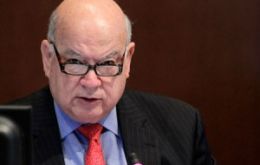
Organization of American States (OAS) Secretary General José Miguel Insulza commemorated on Friday the International Day of the World's Indigenous Peoples with a call for the protection of the all native peoples of the Americas and urged the full implementation of treaties and other agreements that states have adopted internationally and especially in the Inter-American context.
-
Saturday, August 10th 2013 - 02:10 UTC
Indigenous peoples in Argentina: “we don’t want to be considered strangers in our own country”
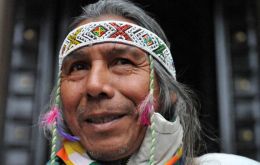
“We want to live as human beings. We don’t want to be considered as strangers in our own country, poor or useless. We want to live without discrimination. We don’t want blood shed, we just want to reclaim our community,” said to Amnesty International Félix Díaz, leader of the Qom indigenous community of Potae Napocna Navogoh (La Primavera), in Argentina’s northern province of Formosa.
-
Saturday, August 10th 2013 - 02:04 UTC
Corruption allegations in crucial Sao Paulo city reach Brazil’s main opposition party
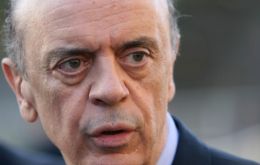
After the mensalão case rocked Brazil’s ruling party, it seems it’s now the turn of the Social Democrats (PSDB), the main opposition party. The Attorney General’s office and the police are investigating the allegations against the PSDB and if its leaders received kickbacks from a scheme involving the maintenance of train and metro lines in Sao Paulo.
